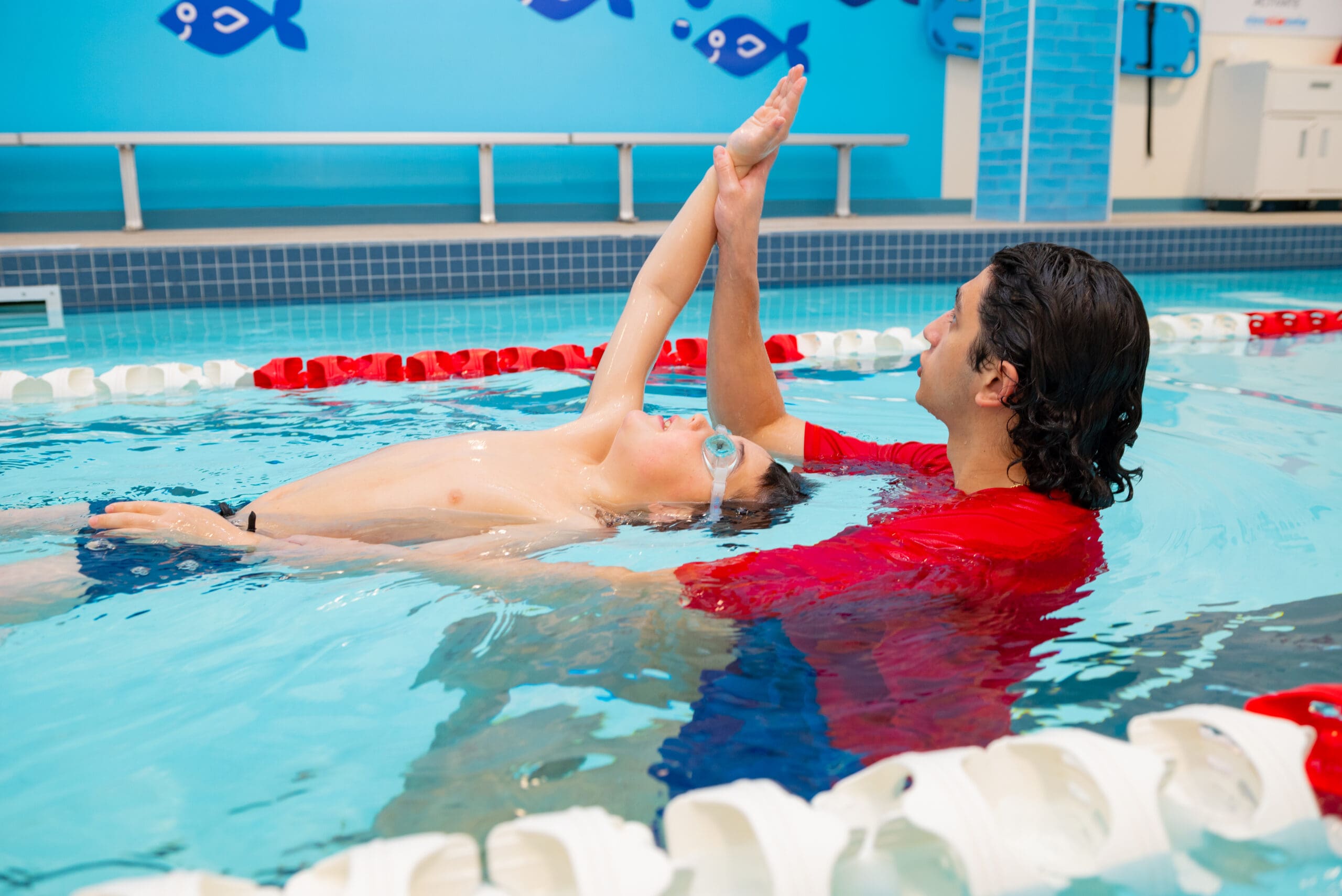
Did you know swim lessons can enhance your child’s brain development? Discover how swimming supports memory, concentration, and learning—making it one of the best activities for growing minds.
Building Brains While Making Waves
When most people think about swimming, they picture splashes, kicks, and laughter—but what’s happening inside your child’s brain during swim lessons is just as important.
Swimming isn’t just great physical exercise; it’s also a powerful brain booster. At KidsCanSwim, we’ve seen time and time again how time in the pool helps children develop sharper thinking, better focus, and more advanced problem-solving skills. In this post, we’ll explore the surprising ways swimming promotes cognitive development—and why it’s one of the best early learning tools you can give your child.
1. The Brain-Body Connection: Why Movement Matters
Children’s brains develop through movement. When they move, especially in rhythmic and coordinated ways, their brains form and strengthen neural pathways that support:
- Focus and attention
- Memory retention
- Language and literacy development
- Emotional regulation
- Sensory processing
Swimming, unlike many land-based activities, engages both sides of the brain at the same time. This is known as bilateral stimulation, and it’s been shown to improve how children process and store information—making it easier for them to learn, remember, and apply new skills.
2. Swimming Improves Memory and Concentration
Swim lessons require children to:
- Follow multi-step instructions
- Remember safety cues and stroke sequences
- Maintain focus over time
- Listen closely to verbal guidance and visual demonstrations
All of this helps sharpen both short-term and working memory. As they practice these skills week after week, children build mental stamina and attention span, which translate directly to better performance in school settings.
3. Routine and Structure Support Executive Function
Executive function is a set of mental skills that includes working memory, flexible thinking, and self-control. These are the skills kids use to:
- Focus on a task
- Follow rules
- Shift attention between activities
- Control impulses
Swim lessons reinforce these skills through predictable structure. At KidsCanSwim, children learn:
- What to expect at each lesson
- When to wait, listen, move, and respond
- How to try again after setbacks
- How to work through challenges with patience
This repetition and structure help wire the brain for self-discipline, organization, and goal setting—all of which are critical to academic and life success.
4. Swimming Encourages Problem-Solving and Spatial Awareness
Water is constantly moving—and learning to swim in it means learning how to adapt. Children develop problem-solving skills as they:
- Navigate obstacles
- Adjust strokes to stay afloat
- Gauge distance between themselves and the pool wall
- React to feedback from their instructors or peers
These situations challenge the brain to think critically and spatially, especially as kids learn how their movements affect their position in water.
The result? Improved ability to reason, visualize, and think ahead—skills that are essential for subjects like math, science, and even art.
5. Swimming Reduces Stress and Boosts Emotional Readiness to Learn
Stress is one of the biggest blockers of learning in young children. Swimming provides an ideal outlet for:
- Releasing built-up energy
- Regulating emotions through movement
- Creating a sense of accomplishment and pride
- Building self-esteem in a supportive environment
When a child feels calm, capable, and emotionally safe, they’re more open to learning. Many parents report that their children are more focused and cooperative after swim lessons—an effect that can last for hours.
Swimming isn’t just about physical safety or fitness—it’s a whole-child development tool. It helps children learn to focus, follow instructions, solve problems, and navigate the world with greater confidence and control.
By enrolling your child in swim lessons, you’re not only helping them stay safe—you’re giving them a cognitive edge that supports their growth in every other area of life.
